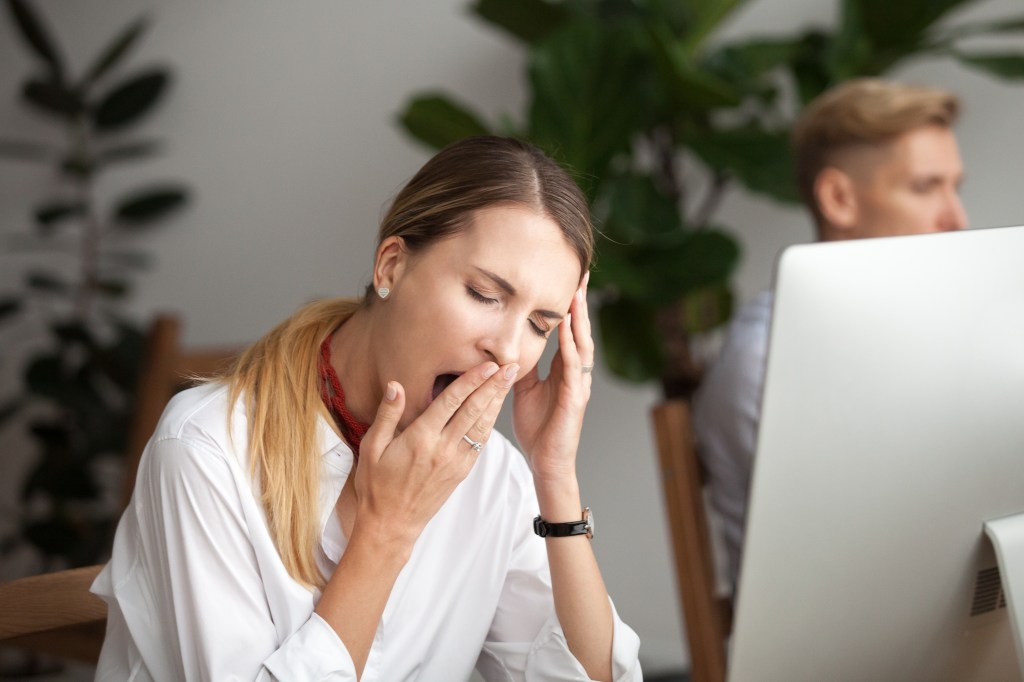- February 26, 2024
- 12 minutes read
The everyday bad habits that are secretly draining your energy revealed

Don’t let low energy keep you down.
From dining too late to moving too little, the key to avoiding that midafternoon slump has less to do with what you’re doing all day and more to do with how you’re doing it.
According to doctors who spoke with HuffPost, here are the ways you might be draining your energy levels, and tips on how to change these habits.
Having a late dinner
There’s a reason breakfast takes the “most important meal of the day” title.
A balanced diet of whole foods is essential to maintaining health and vigor — but the menu isn’t the only crucial factor. Regardless of what’s on the plate, saving your biggest meal for the end of the day can make you extra tired the day after.
“The adage ‘eat breakfast like a king, lunch like a prince, and supper like a pauper’ is actually based in biology,” Dr. Mary Valvano, a physician from BetterNowMD, said.
“Cells in our body metabolize food differently based on the time of day. Eating the same meal at 8 a.m. versus 6 p.m. can affect our body’s ability to use it for energy,” Valvano explained.
Eating meals late at night can “impair our blood sugar levels and the ability to get optimal energy from the next day’s meals,” she added.
Not getting enough sleep
You might not have ever thought to connect the two, but Valvano explained that eating a large meal at night can negatively affect the body’s natural circadian rhythm, interrupting sleep and making good sleep harder to achieve.
Board-certified internal medicine physician with Parsley Health Dr. Ruvini Wijetilaka told HuffPost that people who are sleepy during the day probably aren’t getting enough high-quality deep sleep at night.
The Centers for Disease Control and Prevention recommends at least seven hours of sleep per night, so if you’re getting less, that’s a habit to break to have more energy.
Eating your biggest meal at the end of the day can be a recipe for disaster for next-day energy levels. Getty Images
Previous studies have shown that hitting the snooze button can be beneficial to overall well-being.
A December 2023 study published in the journal Sleep Health suggests that sleeping in on the weekends could save your life in the long run.
Researchers found that an extra two hours of sleep on the weekend can reduce the chances of a heart attack or stroke by 63% — especially for people who get less than six hours of sleep during the week.
Additionally, research from October 2023 found that getting a few more minutes of sleep after snoozing your alarm could actually help avid snoozers wake up.
The study, published in the Journal of Sleep Research, found that people who snoozed regularly got additional sleep and were more cognitively alert upon waking, despite the disturbed sleep.
Board-certified internal medicine physician with Parsley Health Dr. Ruvini Wijetilaka told HuffPost that not getting enough sleep, particularly deep sleep, will drain energy. Getty Images
Drinking energy drinks
Experts claim that energy drinks can actually do the opposite of what they’re intended for.
Energy drinks have previously been linked to harming heart and brain health, inflammation, an increase in blood pressure and more.
“The more serious risks of caffeine are mostly related to heavy consumption from use in energy drinks and in supplement form,” Dr. Stephen Devries, a preventive cardiologist, previously said in an American Medical Association report.
However, other sources of caffeine could be beneficial for energy levels.
“Consuming caffeine from sources like tea, especially green or fermented tea, can help improve energy levels by supporting the mitochondria, which are responsible for producing energy in our cells,” Valvano said.
Previous studies have shown that hitting the snooze button can be beneficial to overall well-being. Getty Images
A sedentary lifestyle
Whether you work from home or in an office, living a sedentary lifestyle — especially in addition to eating a diet that is high in sugar and full of processed foods — can deplete energy levels.
“Regular exercise can help improve energy levels by increasing blood flow and oxygen to the brain and muscles,” Dr. Danielle Kelvas, a physician based in Chattanooga, Tennessee, told HuffPost. “Aim for at least 30 minutes of moderate-intensity exercise each day, such as brisk walking, cycling, or swimming.”
Kelvas added that a diet of whole, unprocessed foods focusing on eating a variety of fruits, vegetables, whole grains and lean proteins can help sustain energy levels throughout the day. She added to avoid too much sugar and processed foods since these can lead to energy crashes.
Chronic stress
Low energy levels and fatigue are known side effects of stress and emotional exhaustion.
“Practice stress-management techniques such as meditation, deep breathing, or yoga to help reduce stress levels and improve energy,” Kelvas advised.
When to seek help
While some energy jobs and bouts of fatigue are most likely nothing to worry about, Harvard Health recommends seeking out a doctor if your fatigue lasts longer than a week or two — especially if you have additional symptoms such as fever, loss of appetite or shortness of breath.
“Low energy levels can be associated with various health conditions, such as infections, hypothyroidism, hyperthyroidism and sleep disorders,” Kelvas said. “Lifestyle factors such as lack of physical activity, poor nutrition and stress can also contribute to low energy levels. If you are experiencing persistent low energy levels, it may be a good idea to talk to a doctor.”
